Veteran producer Frank Marshall talks about shooting The Last Airbender with M Night Shyamalan in Greenland, tax breaks and his philosophy on producing.
Producer Frank Marshall started his career as assistant to Peter Bogdanovich on Targets in 1968, building a CV spanning combining logistically-ambitious productions like the Indiana Jones series, The Curious Case Of Benjamin Button and the Bourne trilogy, alongside directorial projects like Eight Below and Alive.
Having produced The Sixth Sense and Signs Marshall reteams with director M Night Shyamalan on The Last Airbender, for Paramount and Nickelodeon Movies. Based on the Nickelodeon show, the fantasy adventure stars Dev Patel and has so far taken over $167m around the world.
Marshall’s upcoming projects include Clint Eastwood’s Hereafter, Steven Spielberg’s in-production War Horse and the in-development Bourne Legacy.
With Steven Spielberg and Kathleen Kennedy he formed Amblin Entertainment, leaving in 1991 to form the Kennedy/Marshall Company with Kennedy.
How did The Last Airbender come together?
Actually I was not aware of the show. When Night got interested in it because of his kids he called up and said I’m going to do this big movie and I need you guys. I asked my kids and they said that would be great. I thought, this is wonderful, because if we’re able to do a movie where you could take the kids and enjoy it at the same time, and not be looking at your watch, that would be great.
To be able to create a fantasy world, I hadn’t really done that in a while. It had a lot of things that interested me.
You worked with M Night Shyamalan on The Sixth Sense and Signs. Is The Last Airbender a departure for him?
Even though it’s different, and it’s big and it’s not his idea, he still has a wonderful imagination and his filmmaking style really complements this kind of story. And I thought it would be interesting to see him stretch himself into a new genre. It’s so different. Although if you look at his movies they’re fairytales in a way. It had some things that were new, but it also had a basis for him that he was used to.
You shot in Greenland and Philadelphia. How was that?
On Airbender we had three weeks in Greenland and then we had these massive sets on the East Coast. We took over a couple of warehouses and a big aircraft hangar in the navy yard. One of the things I told [Shyamalan] early on was that in these kinds of movies where there’s a lot of green screen, and particularly since he hadn’t done one before, that it would be important to have as much of the environment be real as possible. Both for him and for the actors.
Greenland was cold. I’d shot there before, [when] I directed Eight Below, so I knew the hotel. We did have to send a lot of stuff three or four months early in containers, so the sets and the costumes had to be accelerated and done much earlier than normal, so it all had to be worked out – the look of the village, the look of the tribe. It was a logistical and planning challenge.
Shooting there was very hard: the opening shots of the movie were on a lake that we had to helicopter to. But I’ve had a lot of experience with that.
You have worked on a lot of complex productions.
I love location movies. I think part of why the Bourne films work was that we actually go to the locations. We don’t even cheat when we could cheat. I think people feel that in certain movies. Sometimes if it’s just a little scene it’s okay to cheat. But we went to Goa, India, and you feel it. It’s a lot easier to make things happen and have things look authentic when you’re there.
Is it more expensive to have this approach?
Yes. Because most of the places we go don’t have any infrastructure; there’s no crew, if a camera breaks you can’t just call up and get another camera brought, or if you need another electrician there’s not one that’s available. You have to bring everybody, you have to house them and feed them. It is more expensive.
How vital are tax breaks?
Very important. It was the reason that the last Bourne was based here in London, whereas we could have gone to Berlin like we did on the second movie. We just got a better deal here. On Benjamin Button the story is originally set in Baltimore, Maryland. Then we heard about this big tax break Louisiana was going to give to movies and David Fincher went down and said, ‘I think I can make the movie here.’ So we moved it to New Orleans.
[On Airbender] Philadelphia has a tax break and Night has made all his movies there. It was good that they helped us.
What’s your philosophy to producing?
It’s a combination of things. I’ve always felt that what I enjoy about the process as a producer is a combination of the business and the art. So you tell me what you want and I figure out how to do it. One thing I learned very early when I was a location manager is don’t show directors things you can’t get. If you find a perfect house don’t show it to them until you can get it because they’ll fall in love with it. I’m trying to interpret the vision and be creative at the same time. I’ve always prided myself on working with the director to get the movie made rather than against the director. There are some producers who just say no, you can’t do that.




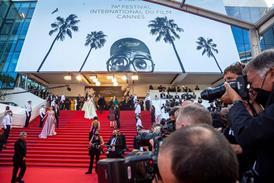
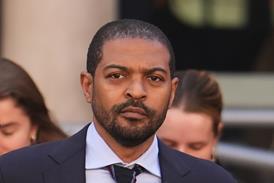
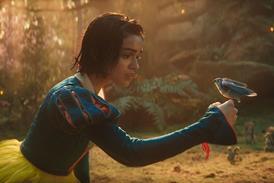
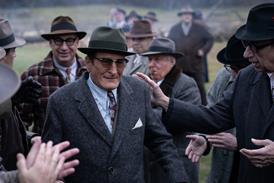



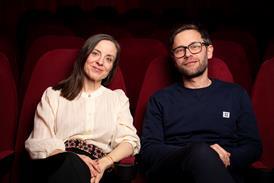
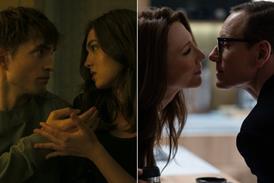









No comments yet